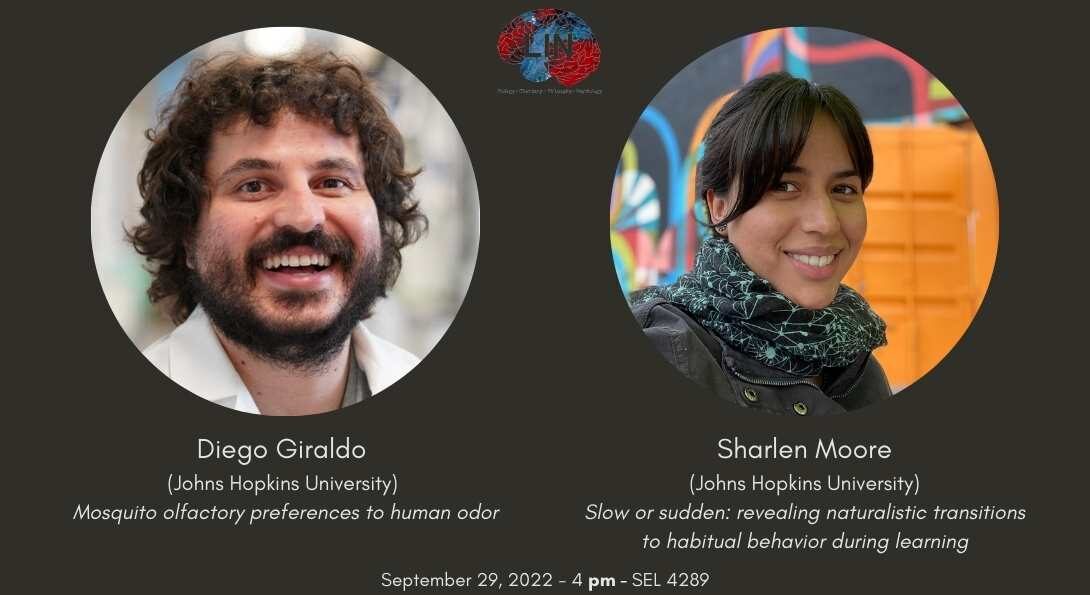LIN Seminar: Diego Giraldo & Sharlen Moore
September 29, 2022
4:00 PM - 5:00 PM

Location
SEL 4289
Calendar
Download iCal FilePlease join us on Sept. 29th at 4pm for a LIN seminar featuring Diego Giraldo & Sharlen Moore.
Host: Angie Salles
Diego Giraldo will present "Mosquito olfactory preferences to human odor"
Abstract: Mosquitoes are responsible for transmitting deadly and debilitating diseases to humans such as malaria, dengue and Zika. The yellow fever mosquito Aedes aegypti and African malaria mosquito Anopheles gambiae are highly anthropophilic and exhibit strong innate sensory drives to seek out humans in their sensory environments. Amongst these cues, human odor is crucial for long range host detection. Differences in human odor composition have been found to influence mosquito attraction to hosts, with important implications in disease transmission. We have developed a large scale, semi-field system for the quantitative tracking of mosquito olfactory preferences to human body odor and warmth. To further understand the neuronal basis of these differences we have recently applied CRISPR-Cas9 T2A-In Frame Fusions and the QF2-QUAS system to gain genetic access to the mosquito olfactory sensory system. Using these reagents and calcium imaging, we can visualize responses of different classes of olfactory sensory neurons to understand how different components of human odor are detected and processed by the mosquito brain. These optimized methods for peripheral and central imaging of mosquito neural activity have the potential to be applied to yield fundamental insights into the molecular and cellular basis of mosquito attraction to humans, olfactory preferences, and other facets of their sensory biology.
Sharlen Moore will present "Slow or sudden: revealing naturalistic transitions to habitual behavior during learning "
Abstract: Habits are a part of our everyday lives but when how does a goal-directed behavior become habitual? Current approaches for distinguishing between the two decision modes requires discrete ‘test’ sessions that preclude assessment of the nature, timing and properties of transitions. I will present a novel naturalistic devaluation approach in rodent models to assess the underlying decision mode en passant, without discrete ‘test’ sessions. I will provide behavioral and modeling evidence that rather than being a slow, gradual process, the transition from goal-directed to habitual behavior is abrupt and is accompanied by signatures of automaticity in licking microstructures. Finally, I will present in progress studies that aim to isolate pupil-based biomarkers of the two decision modes and the role of the dorsolateral striatum.
Date posted
May 17, 2022
Date updated
Sep 27, 2022